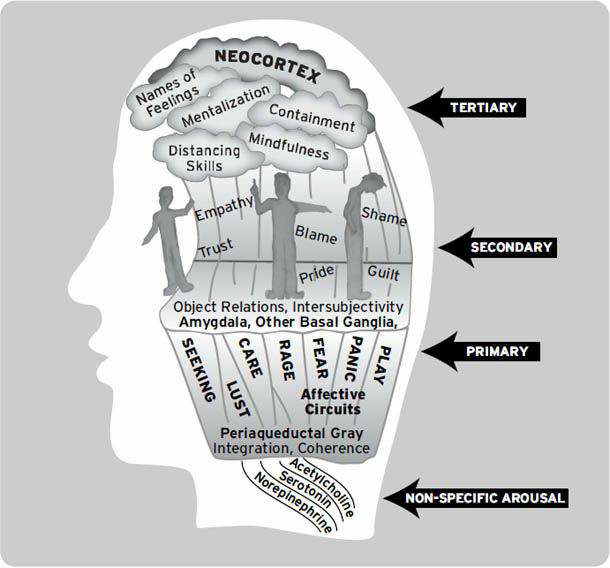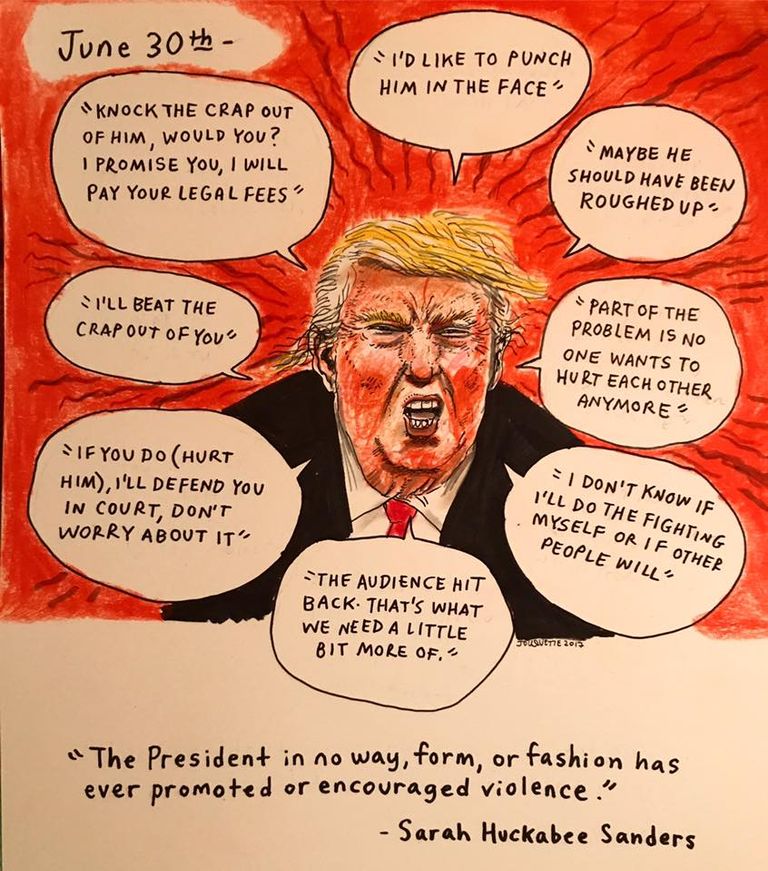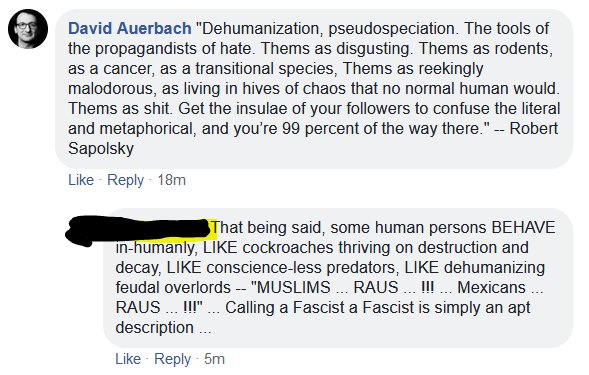Trump brings out the worst not just in his supporters, but also in his opponents.
For years, I watched as the rhetoric of talk radio and Fox News was assimilated into the Republican party. It homogenized Republican discourse and kept up a level of anxiety over everything from terrorism to healthcare to Barack Obama himself. The left (and that elite part of the center that now considers itself part of the “resistance”) had its own sub-discourses, but aside from Obama’s fleeting inspirational moment in 2008, there was no common thread that kept Democrats, liberals, and leftists attuned to a single issue. Not even the Iraq War was sufficient. For a genuine mass left movement, you have to look back to Vietnam.
That has changed with Trump. Opposition to Trump personally has become the unifying thread. Standard Republican policies are far more terrifying under the auspices of Trump than they otherwise would be.
Even more remarkable than Trump’s grip on his supporters is his hold on his opponents. I lived through the terror and paranoia following September 11, 2001, and I swore to myself never to fall into such a mental trap again. In this country, such mass hysteria hasn’t happened again among the left until now, and social media has amplified it tenfold. Compared to the ravages of the Iraq War, the human consequences of the Trump administration have been comparatively small so far.
There is much ink and breath spilled on why Trump has already exceeded Bush, Cheney, and Rumsfeld’s worst excesses. He hasn’t. The Global War on Terror, and the Iraq War in particular, have had far-reaching and deeper consequences than anything Trump has yet achieved. This could change in a day: nuking North Korea or rounding up immigrants en masse could immediately propel Trump into the front ranks of tyrants. But the opposition’s inability to gauge threats, reacting to everything from the North Korea “summit” (a joke, mostly) to ICE abuses (terrible) to Anthony Kennedy’s retirement (lousy, but far from the worst of our problems) with identical (or indistinguishable) levels of fear and doomsaying.
The Trump Difference lies, the conventional wisdom goes, in his flouting of norms and civility. I think this is too vague. Some norms, like the White House Press Correspondents Dinner, lack any real justification, as Stephen Colbert pointed out. Trump’s incivility apparently doesn’t trouble a large chunk of America—and not just his core supporters. Again, Trump is functioning as a catalyst and mirror, not as some grotesque aberration.
The real Trump Difference is to remove rationality, debate, and nuance on all sides. Just as the Affordable Care Act was Communism come to America, now “fascism” is used to describe everything from white supremacists to anti-abortion activists to Antonin Scalia. Maybe it’s useful to have a single euphemism for “bad things” to rally around, but the word has lost all meaning in the process. If Scalia (and Alito and Thomas and Roberts) are fascists, that revelation should not be anything new. It’s solely the presence of Trump that causes the status quo to become more terrifying.
Trump’s charisma exacerbates what I call Cortisol Politics, the basing of politics on the lowest instinctive fight-or-flight reactions of the brain. Trump has caused everything to seem like an emergency. Much of the right already felt this way thanks to the efforts of Rush, Hannity, and Fox over the last 20 years. Now the left feels that way too.

Sandra Paulsen’s illustration of Jaak Panksepp’s model of emotional systems
Trump has a remarkable skill of forcing everyone down to the primary emotional level of this model and then keeping them there. When it comes to politics, iIt’s an ugly place to be, because it’s PANIC, FEAR, and RAGE that drive politics, not the happy fuzzy emotions.
I see some of the most rational people I know fall into fatalistic and apocalyptic pronouncements about the end of America, democracy, and civilization. Pollution dynamics are rampant: as soon as someone has the taint of Trump or Trumpism on them, they must be ostracized, isolated, condemned, and punched (rhetorically).
DC residents are verbally harassing Trump administration members increasingly regularly.
WaPo: “I would say it’s burning people out,” said Anthony Scaramucci, Trump’s former communications director. “I just think there’s so much meanness, it’s causing some level of, ‘What do I need this for?’ And I think it’s a recruiting speed bump for the administration. To be part of it, you’ve got to deal with the incoming of some of this viciousness.”
Tom Davis, a Virginia Republican who spent 13 years in Congress, said Washington has always been a hotbed of dissent. What has changed, he said, is that aggressive tactics “are becoming more normalized.”
“We’re in a situation where bad behavior is being rewarded,” he said. “There are no filters. I don’t know where it ends.”
The hypocrisy here is pretty rich, since Trump has done nothing but normalize and encourage verbal abuse among his fervent admirers. It’s especially hilarious coming from Scaramucci, himself the king of incivility. The whole “incivility for me but not for thee” line has pervaded politics everywhere, and the left certainly is not innocent, but only the Republican party has decided to make incivility, verbal abuse, and bullying part of their presidential platform.
If Tom Davis wants the biggest example of bad behavior being rewarded, here it is:

cartoon by Jesse Duquette, all quotes real
I don’t think going after random Trump supporters is justifiable or wise, but when it comes to administration members, they’re the ones setting the tone, not the opposition.
The problem is less “Two wrongs don’t make a right” than a slippery slope. Harassing administration members is unusual because it’s famous upper-class people who are getting treated poorly. But the dangers lie more in how citizens come to treat each other, and how they come to see each other—or fail to see each other. Cortisol fuels the leap from “Trump is a bullying ignoramus” to “Republican voters are inhuman scum.” And that kind of leap, in my opinion, is never good.
On Facebook recently, when I quoted neurobiologist Robert Sapolsky on the dangers of dehumanizing language, I received a response that sounded a lot more like Rush Limbaugh than Saul Alinsky:

“Some humans only ACT like vermin that deserve to be exterminated.”
Besides being morally questionable, cortisol politics is not good political strategy. It’s not strategic at all. The time to talk about Supreme Court packing, if ever, was in 2009, when Democrats controlled two out of the three branches of government. Talking about it when Democrats control none of them is an escapist fantasy.
LA Times: “The idea of expanding the size of the Supreme Court will get traction IF the Democrats take the White House and Congress in 2020,” Erwin Chemerinsky, dean of the UC Berkeley law school and a constitutional scholar, told me by email. “It is the only way to keep there from being a very conservative Court for the next 10-20 years.”
What one hears in this quote is the frontal lobe desperately trying to appease evolutionarily antecedent parts of the brain. Instead of a strategic roadmap, it’s a squishy vision of a better future. I’ve written before that for all the chaos of the Trump administration, there is still a torpor to the pace of politics these days. Trump alternates between outrageous and comparatively “normal” acts, his opposition alternates between rage and despair. The Republicans have the luxury of reactive and impulsive politics, however, while the opposition does not.
Last week, with a number of frustrating Supreme Court judgments and Kennedy’s retirement, was not a good one, but it was far from Trump’s worst, especially since very little of it was specific to Trump. Most of it would have happened under any Republican administration, and we were due for one sooner or later. Trump’s genuine worst week, I think, was that of the initial travel ban, because it held out the prospect of the overturning of the rule of law and rule by executive fiat. He backpedaled quickly, which was the greatest relief so far of the Trump era.
Trump no doubt still desires such an approach, but the irony is that Trump is working through the system more now than he was a year ago. As heralded by the tax bill, he’s become a Republican president. The Justice Department is Jeff Sessions’s more than it is Trump’s. DHS and ICE are John Kelly and Kirstjen Nielsen’s. Trump amplifies their acts with nativist rhetoric, but time and time again Trump has indicated that he really doesn’t care about actual results. He just likes talking and being loved. He does demand that ICE get tough, but he lacks the cognitive tools to measure toughness. If his base seems happy, that’s enough.
But since his base is always happy with whatever he does, Trump is on a treadmill of his standard rhetorical excesses: xenophobia, bullying, and hucksterism. It keeps the cortisol running.
POLITICO: While Kelly himself once believed he stood between Trump and chaos, he has told at least one person close to him that he may as well let the president do what he wants, even if it leads to impeachment — at least this chapter of American history would come to a close.
This is John Kelly speaking, however. “Order,” in his world, still includes deportations and detentions, Gorsuch and Alito, lemon socialism, environmental ostrichism, and tax cuts for the wealthy. The “chaos” is only that which threatens the Republican party more generally, such as Muller’s investigation, trade wars, and diplomatic disasters. Kelly hates having to clean up after Trump after he insults some foreign leader and demands back payments for NATO or whatever. Businesses are no doubt complaining loudly about pointless and self-defeating tariffs. But with the exception of trade, which could send the economy reeling, Kelly is fine with the policy. If cortisol politics feed the policy, as it has done for the Republican party for decades now, that’s okay. It’s just Trump who causes the headaches.
What does it mean, then, that cortisol politics has now taken over the left as well as the right? Perhaps it means a more mobilized base. Keeping constituents in a state of anxiety may help midterm turnout. Trump causes this kind of anxiety on both sides, but such anxiety also breeds defeatism on the left, so be wary of arguments that emotional freak-outs are positive indicators of future Democratic gains.
Yet it does change the calculus. Of all of Trump’s offenses, immigration has triggered the strongest responses. The initial travel ban genuinely mobilized people and produced a walk-back in short order. It was the most heartening action so far by the Trump opposition. That was the key moment when Trump truly did try to unleash internal vigilantism within ICE and DHS, and there were reports of it happening. But somehow it was stopped. I wish I had a better idea of the flow of events, but the combination of court orders, protests from citizens, NGOs, and corporations, and internal disagreements stopped Bannon and Miller’s authoritarian power seizure in short order.
Round Two of the immigration war recently began. This time, it is going through the proper channels, namely Jeff Sessions and the DHS. But the stories and pictures of detained immigrants and children separated from their parents have a more primal and visceral appeal than many of Trump and the Republicans’ other draconian policies. The tax bill from last year and attempted defunding of the ACA will have terrible human costs, but they do not manifest immediately. But a traumatized kid, all alone, is something that is a lot harder to brush away—though it can still be done. It has led to a larger eruption of protest than anything since the original travel ban.
But there is something more amorphous about the protests this time. People are worked up, but because things are being carried out more in the normal course of events rather than by executive fiat, there has been little planning done on how to push back. Some have just gone back to praying for the midterms. Others go to protests in the hope that their numbers will mean something. Some give the finger to Stephen Miller and Kellyanne Conway. I’m not sure if any of this is good enough.
Of all the reactions, Elizabeth Warren’s struck the best tone:
Hey, @realDonaldTrump: While you obsess over my genes, your Admin is conducting DNA tests on little kids because you ripped them from their mamas & you are too incompetent to reunite them in time to meet a court order. Maybe you should focus on fixing the lives you’re destroying.
— Elizabeth Warren (@elizabethforma) July 5, 2018
Warren makes Trump seem petty and distracted, changes the subject to a fundamental emotional appeal, and then uses visceral language to paint the effects of his policies. But she doesn’t demonize him; she belittles him, calling him incompetent. Her words seem to come from a place of strength. Too many other reactions are rhetorically and emotionally vague, appealing to “fairness” and “equality” as if those abstract concepts will move people. Warren is smarter than that, and I think that’s why Trump has gone after her more than her compatriots.
Unfortunately, vagueness is far more the norm. I challenged my Facebook friends and asked them how far they would go to oppose the Trump administration and Republican policies: specifically, what they were willing to sacrifice. “Sacrifice” could mean anything from time to money to reputation to freedom to life itself. I did not get many specific answers. No one said they would go to jail. No one even said they would break the law. It made it seem as though “Punch Nazis!” was merely a rhetorical statement of solidarity and not a genuine commitment to vigilante violence.
Rolling Stone, supposedly an anchor of the resistance, could only muster an extremely tepid article on Eric “U-lock justice” Clanton, who is facing years in prison for doing exactly what “Punch Nazis!” exhorted him to do. I never got on board the “Punch Nazis!” train, because I remain fond of the rule of law, but those who did embrace vigilantism are not pleading Clanton’s case. The commitment and willingness to sacrifice was paper-thin—in this case, perhaps for the best. But it does make me wonder which rhetorical commitments of the resistance really are sincere.
And this too, I think, is an effect of cortisol politics. It produces rhetorical excess and insincerity, sloganeering generated by the moment. It causes words to lose their meanings. It turns politics into an intrinsic game of manipulation, since reason is bypassed in favor of emotional appeals, primarily to negative emotions.
It’s still early days, because most of Trump’s opponents have yet to be faced bluntly with the need for real sacrifice. Those choices may come in the future, or the system may contain Trump sufficiently that “resistance” only has to mean token opposition and voting. Either way, we are in a situation where argument and reason have almost wholly yielded to instinct. Let’s hope evolution doesn’t let us down.
- Trump Diary: Election Eve
- Trump Diary: Trump Alone
- Trump Diary: Cortisol Politics
- Trump Diary: Midterm Election Breakdown
- Trump Diary 13: Kill the Poor
- Trump Diary 12: Postponement of Reality
- Trump Diary 11: May Day
- Trump Diary 10: Everybody Hates Trump
- Trump Diary 9: Black Blocs and U-locks
- Trump Diary 8: Pseudonormalization Prevails
19 July 2018 at 20:59
David,
One interesting aspect of Trump phenomenon that has been underdiscussed is how he has hijacked the shtick of far-left for his purposes. Note how he –a supposedly pro-business Republican– attacks a billionaire Bezos and a so-called left then has to white knight for a billionaire?
Great article on dirtbag-alt-right convergence:
https://www.tabletmag.com/jewish-news-and-politics/us/264786/anti-humanism-populism
4 September 2022 at 01:20
Curious as to how you feel about this issue now, after the events of the next two years and then the two years after that? Was it all just cortisol, really?